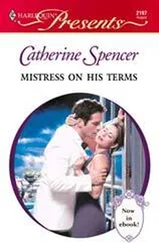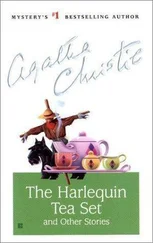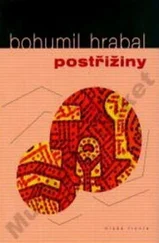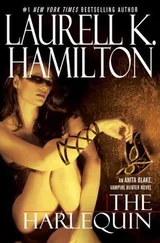Bohumil Hrabal - Harlequin's Millions
Здесь есть возможность читать онлайн «Bohumil Hrabal - Harlequin's Millions» весь текст электронной книги совершенно бесплатно (целиком полную версию без сокращений). В некоторых случаях можно слушать аудио, скачать через торрент в формате fb2 и присутствует краткое содержание. Год выпуска: 2014, Издательство: Archipelago Books, Жанр: Современная проза, на английском языке. Описание произведения, (предисловие) а так же отзывы посетителей доступны на портале библиотеки ЛибКат.
- Название:Harlequin's Millions
- Автор:
- Издательство:Archipelago Books
- Жанр:
- Год:2014
- ISBN:нет данных
- Рейтинг книги:5 / 5. Голосов: 1
-
Избранное:Добавить в избранное
- Отзывы:
-
Ваша оценка:
- 100
- 1
- 2
- 3
- 4
- 5
Harlequin's Millions: краткое содержание, описание и аннотация
Предлагаем к чтению аннотацию, описание, краткое содержание или предисловие (зависит от того, что написал сам автор книги «Harlequin's Millions»). Если вы не нашли необходимую информацию о книге — напишите в комментариях, мы постараемся отыскать её.
In this moving, absorbing novel, we meet the eccentric residents of a home for the elderly who reminisce about their lives and their changing country. Written with a keen eye for the absurd and peppered with dialogue that captures the poignancy of the everyday,
is a sensual delight.
Bohumil Hrabal
Harlequin's Millions — читать онлайн бесплатно полную книгу (весь текст) целиком
Ниже представлен текст книги, разбитый по страницам. Система сохранения места последней прочитанной страницы, позволяет с удобством читать онлайн бесплатно книгу «Harlequin's Millions», без необходимости каждый раз заново искать на чём Вы остановились. Поставьте закладку, и сможете в любой момент перейти на страницу, на которой закончили чтение.
Интервал:
Закладка:
Bohumil Hrabal
Harlequin's Millions
The absurdity of the game.
A child sets up his toy figures
only to knock them down again.
GOMPERZ1
JUST OUTSIDE THE LITTLE TOWN WHERE MY TIME stood still is a small castle, and in that castle is now a retirement home. There is only one road leading to the castle, which is at the top of a hill, the road is lined with old chestnuts, the branches of these old trees form a tunnel, so when you walk uphill it’s as if you’re striding through a long, Gothic vault, all the branches are intertwined, they don’t just support each other, they’re completely entangled, locked together by storm and wind. Somehow these trees, in their struggle for a bit of light, seem to have grown weary in the crown and are wasting away, so that the road is forever strewn with dried branches, black and charred, worn bare with constant friction. Sometimes when the wind is still, a whole branch will suddenly drop into the sand, you stand and stare as if a tile has just fallen from the roof, then you lift it up and toss it aside and feel the weight that might have injured you. Each time I set foot on that road, I’m putting my life at risk. I look up and see the five-hundred-meter-long tunnel, held up by black barriers that rise to the treetops like lances raised to honor some victory in a jousting match. If I chose to I could take the footpath that runs along the road, where the branches dip nearly to the ground, it’s lovely to walk up that path along the road from spring to autumn enjoying the leaves and flowers, in the autumn you see the burrs splitting open and firing their brown chestnuts, but I prefer to walk beneath the colonnade of black trunks, at the end of which is the entrance to the castle, like a great black curtain, the iron has been worked by a goldsmith’s hammers and tongs, while the gate itself is forged in the shape of the two black wings of a fallen angel, a gate, I should add, that opens only on visiting days. Even on a sunny day, when you climb up the hill to the gate, you’re walking in semi-darkness, all around you on either side of that double road sunlight and colors come trickling through the branches, as you walk slowly up through that shadowy crypt from which now and again, but always suddenly and unexpectedly, a black branch falls. And because on a sunny afternoon the white light in the castle courtyard is intensified by the gravel scattered there and on the road, against this bright background the black outline of Count Špork’s initials and arms stands out even more clearly, inscribed in the wings of the gate the way Francin used to write down the first and last names of the publicans in his brewery book, always embellishing the names with a calligraphic initial in red and blue ink, like the initials in a missal. Next to the gate, under the last gigantic chestnut tree, is a little house where the gatekeeper sits. Even on a sunny day the lights are on inside, because the shadows on the road are so deep, the treetops so dense, covered from spring to fall with an awning of leaves that keeps out the sun. We each take turns acting as gatekeeper, many of the pensioners here consider it an honor to perform this service at what was once the Count’s gate. Everyone who spends ten hours on duty here, keeping watch over that beautiful gate, feels like a changed person, it’s such a great honor to inspect each pensioner who enters the gate. There are some pensioners who live in the castle side by side, have their beds side by side and sit side by side at the table, but here at the gate they act as if they don’t know each other at all, as if they’re seeing each other for the very first time. They question each other about the purpose of their visit, even if they’re friends, during those ten hours the gatekeepers even seem to have forgotten the faces of their fellow pensioners and demand accordingly of everyone who passes through the gate that he not only state his name but also show the papers that prove he really does live in the castle. It’s lovely to walk up the hill along that lane, to be just an ordinary pensioner, an ordinary mortal, exhausted and nearly at the end of her strength and yet still climbing up the hill through that deep darkness, looking up at the elaborate black ironwork of the imposing gate, the lances and curves and points, the circles and great billowing waves all forged under a goldsmith’s hands, it’s lovely to walk through that gate and stroll through the castle park down the sand-strewn path past the stunted yews in the courtyard, meeting other pensioners no better off than you are, old men and women just wandering around, hobbling along and stealing glances at one another to see whether there might be someone worse off than they are, until they hear the bell for morning coffee, lunch, afternoon tea, and finally, for dinner. I still always think it’s lovely to stop in front of the castle and look up at the façade, which, when lit by the sun, is completely beige and radiates such light and warmth that it dazzles you. After a while, when you’ve gotten used to the beige glow of the walls, you focus your eyes on the huge wrought-iron clock, which fills the entire space between the second and third floors. The hands were made by a goldsmith and are as big as a grown man. When I first saw that clock it gave me a terrible fright, because even though it was just before noon, those hands were pointing to twenty-five past seven. At twenty-five past seven the clock had stopped, and no one had been able or even had a reason to repair it. The sad thing was that this clock, which always showed the exact same time up there on the castle wall, was like a memento mori, because everyone here and in this area knows that most old people die in the evening, at just about half past seven. And when I first stood here and saw how the poplars and oaks and dark spruce trees towered over the castle, how the park enclosed the castle on the south side in the shape of a horseshoe, when I turned my gaze back to the castle I saw that there were large, bare patches on the front wall where the plaster had crumbled. Here and there the original masonry showed through, as if the wall had been decorated with giant envelopes, engraved in the hardening plaster. And because the castle was on a hill outside the little town where time stood still, I could hear the wind, a stiff breeze that whistled around the castle and surrounded it with the rustling of leaves, the century-old aspens trembled even when there was no wind, millions of leaves fluttering endlessly and trying to free themselves from millions of stems. I noticed at once, on that very first day, that you could walk from the great halls onto the balconies, which, like the gate, had been forged by goldsmiths, the balconies were all shaped like great transparent bathtubs, they looked like transparent sleighs, fit for a nobleman, or transparent coaches, or the flower beds around lavish tombstones. I noticed that the pensioners were sitting out there in the sun, silent and motionless, their heads resting on the railings of those balconies decorated with flower boxes, from which hung withered petunias and snapdragons and zinnias blackened by the sun like tobacco leaves. And below the clock I saw limp human arms hanging down, weary arms, some crossed for no particular reason, palms dangling like droopy flowers, wrists in dazzlingly white shirtsleeves. Through the ironwork I could see a chair and on that chair were a pair of outstretched legs, the rest of the body was blocked by a green flower box. And at that moment a gutter came loose from the side wing of the castle and swung down like a barrier at a crossing, as it fell it spun quickly around a fixed point like the big hand of an astronomical clock, but the rusty gutter stopped and remained there, it swayed back and forth, threateningly, spilling rust and old leaves and a bird’s nest.
Читать дальшеИнтервал:
Закладка:
Похожие книги на «Harlequin's Millions»
Представляем Вашему вниманию похожие книги на «Harlequin's Millions» списком для выбора. Мы отобрали схожую по названию и смыслу литературу в надежде предоставить читателям больше вариантов отыскать новые, интересные, ещё непрочитанные произведения.
Обсуждение, отзывы о книге «Harlequin's Millions» и просто собственные мнения читателей. Оставьте ваши комментарии, напишите, что Вы думаете о произведении, его смысле или главных героях. Укажите что конкретно понравилось, а что нет, и почему Вы так считаете.












